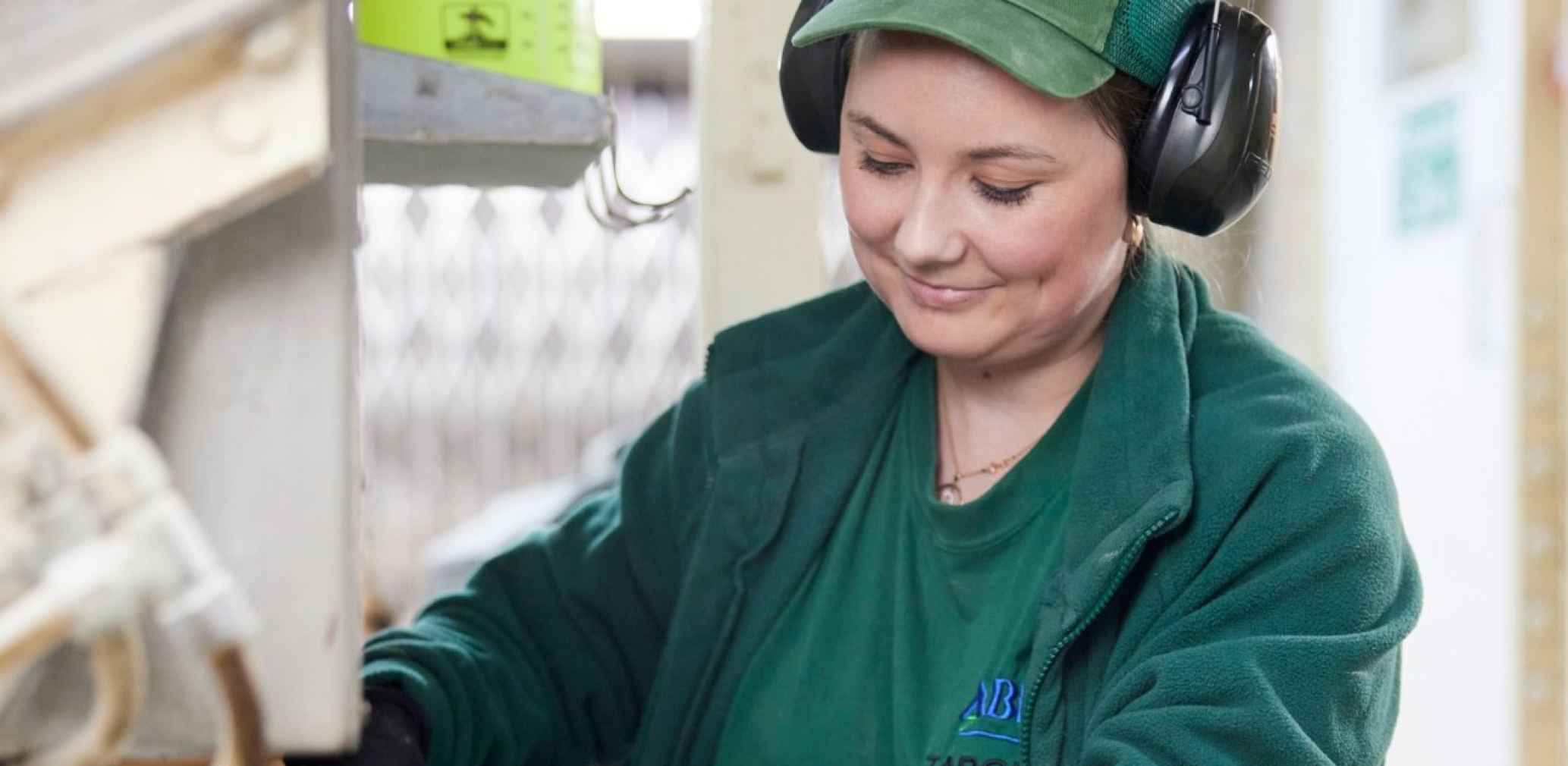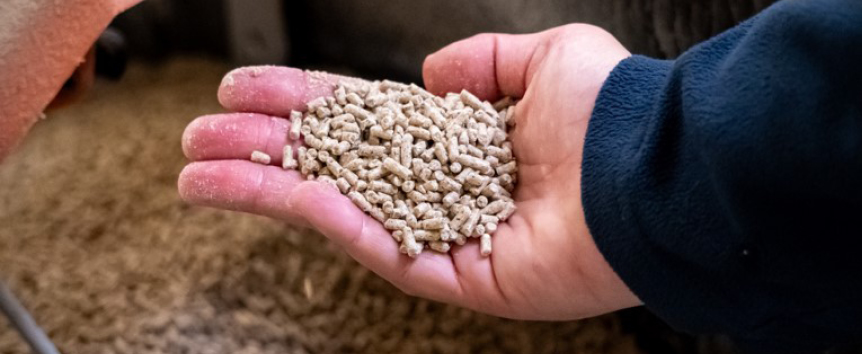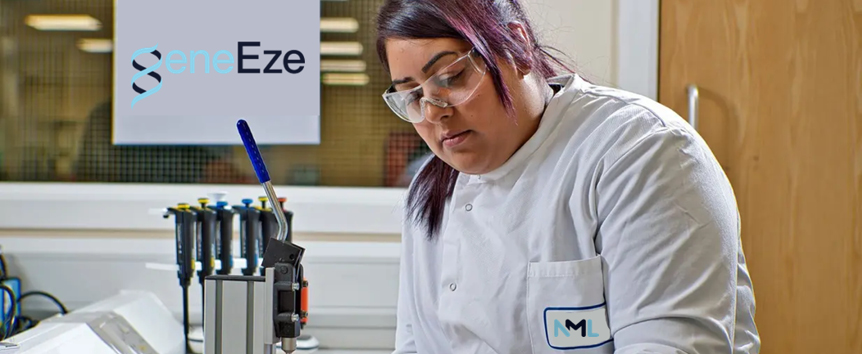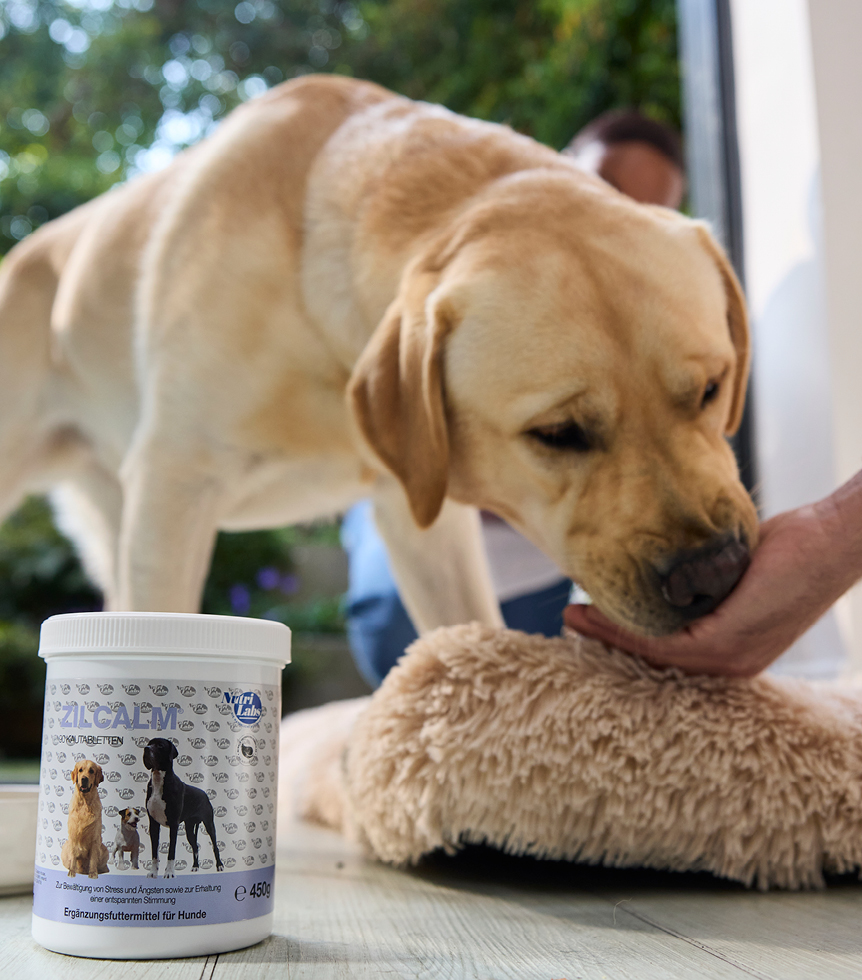About Us
Our Businesses
Investors
Responsibility
Media
Careers
For AB Agri, building more sustainable ecosystems means optimising land use across both individual farms and entire food systems. This approach helps to ensure that land is effectively utilised at all levels for food and feed production, carbon storage, energy generation and human activities.
 One of our AB Agri consultants with a client farmer on their farm in Somerset, UK
One of our AB Agri consultants with a client farmer on their farm in Somerset, UK
Some essential inputs for agriculture, such as CO2 for plant growth and nitrogen for livestock feed, contribute to climate change. Improving the efficiency of these inputs not only reduces CO2 emissions per unit of food, such as per kilo of chicken or litre of milk, but also helps keep food affordable by optimising the use of nutrients.
AB Agri evaluates the livestock farming ecosystem to identify commercial opportunities and develop solutions to address these challenges. Science and research are the cornerstones of its approach. Underpinned by its community of scientists, all commercial solutions developed by its businesses are rigorously assessed for safety and to demonstrate efficacy. Its businesses invest in researching scientific advancements by collaborating with universities and utilising its own laboratories and trial sites. These include the AB Neo Centre of Excellence trial farm in Spain and the Amur laboratory at the University of York Science Park.
External standards and the regulatory landscape are also vital considerations for AB Agri. While the agriculture industry upholds high standards, regulatory frameworks do not always keep pace with scientific developments. This creates opportunities in more adaptable markets to implement new technologies.
Industry groups and bodies play an essential role in agriculture. They help to improve food production standards and represent agricultural businesses in interactions with stakeholders such as consumers and governments. AB Agri businesses and employees actively participate in industry organisations at national and international levels.
These include representation on the Agriculture Industries Confederation (AIC), the European Feed Manufacturers' Federation (FEFAC), the International Feed Industry Federation, the Global Feed LCA Institute, the Global Dairy Platform and the British Equestrian Trade Association, to name just a few.
The UK Dairy Carbon Network is a UK-wide consortium, led by The Agri-Food and Biosciences Institute, and is a three-year project funded by Defra.
The project aims to establish a network of 56 dairy farms across four major dairy regions in the UK: Northern Ireland, Cumbria and Southwest Scotland, Northwest England, and South/Southwest England and West Wales. These networks will serve as demonstration hubs where farmers, industry, scientists and policy representatives will work together to deploy, assess and measure the impact of solutions to reduce GHG emissions on farms.
These measures will include innovations in animal management to improve health and welfare, feeding strategies and nutrient management as well as additives and technology.
AB Agri is a key stakeholder for this project, working closely with the project partners to enable all its relevant products and services to be offered to farmers as part of the network. These products and services can then be assessed for impact through a combination of direct measurements, novel indicators and farm-level carbon footprint models. It is envisaged that AB Agri businesses such as Kite, NRM, KW/Trident, Intellync and Bodit will have key roles to play throughout the duration of the project.
For AB Agri, more sustainable ecosystems relate to both individual farms and whole food systems, where land use is optimised for food and feed production, carbon storage, energy generation and human use. Nutrients are retained within the agri-food ecosystem and distributed to wherever they can have the greatest value.
There are three interconnected principles which underpin AB Agri’s priorities for action in this area:
Over the last century, improvements in farming practices and technology have enabled food to be produced at scale, and more economically than ever before. In addition, as the world has globalised, agricultural supply chains have become increasingly complex.
In managing its supply chain, AB Agri prioritises the safety and quality of its products while respecting the lives and livelihoods of those within the supply chain and the environment. AB Agri recognises the unique contribution that each business along the value chain plays, from micronutrient producers for animal feed to milk processors. AB Agri assesses its supply chain risk against criteria aligned to its ‘Care Factors’ and has prioritised mapping specific ingredients with high inherent risk or where a single market supplies over 90% of global demand. In complex areas where traceability is challenging, AB Agri believes that transparency and good supply chain governance are critical, while recognising the potential for traceability enhancements in the future through better use of technology.
As a user of soya and palm oil derivatives, AB Agri has long prioritised mitigating the risks associated with forest-risk commodities1. Considerable progress has been made, particularly with soybean meal, a key ingredient in poultry feeds due to its nutrient content and cost-effectiveness.
AB Agri has committed that all palm oil and soya usage, including derivatives, will be certificated supporting zero deforestation responsible sourcing schemes by the end of 2025 across all geographies, except China, which will be certificated by 2028. Although significant progress has been made by its China business, which sells all its products to the local market, AB Agri acknowledges that the Chinese market presents greater challenges particularly for soya.
In calendar year 2024, 100% palm oil and derivatives were certificated, supporting more sustainable production, using a combination of RSPO book and claim credits and mass balance.
As of October 2025, 94% of the soya products AB Agri purchased globally, excluding China, were certificated to schemes meeting the European Feed Manufacturers' Federation (FEFAC) benchmark for responsibly sourced soya, and the plan is to achieve 100% before the end of 2025. Including China, this figure was 83%. AB Agri is an active member of the FEFAC Sustainability Committee, the Agricultural Industries Confederation Sustainability Committee and the UK Roundtable on Sustainable Soy, all of which are working on supply chain solutions to achieve more sustainable supply.
Since September 2023, all of AB Agri’s South American maize and maize co-products have been certificated as a minimum to a book and claim standard2. AB Agri has also adopted a supplier scheme for sourcing segregated Argentine flint maize, where AB Agri takes the co-product, maize germ.
In 2007, AB Agri’s UK businesses supported the Soya Moratorium which committed to end the purchase of soybeans produced on deforested land in the Brazilian Amazon Biome.
New laws addressing deforestation, such as the EU Deforestation Regulation (EUDR), will require new supply chain practices across global markets, especially with respect to traceability and data management. AB Agri is working closely with external bodies such as FEFAC, AIC, suppliers and customers, and internally with its purchasing and commercial teams, to build knowledge, capability and develop enhanced processes across its supply chains to address these requirements. AB Agri is reassessing how its forest-risk commodity targets should evolve, taking into account new regulatory requirements, as well as emerging market expectations and best practices.
1.Forest Risk commodities for AB Agri are defined as soya, palm oil and derivatives, cocoa, wood flour, and South American maize.
2.The supply chain model book and claim represents the trade of credits through a credit trading platform. The certificates are separated from the physical flow of feed.
Consumers expect the global agricultural industry to uphold high standards of animal health and welfare in livestock farming. Although AB Agri does not operate commercial livestock farms, its technical expertise helps to support animal health through advanced technology and better nutrition.
Animal health and welfare relates to a broad spectrum of considerations, from disease prevention to stocking density and other living condition factors. These are best described by the Five Domains Model for animal health and welfare, which form the basis of AB Agri’s Animal Health and Welfare Policy.
Antimicrobial resistance is recognised as a threat to human health and the livestock sector has been making efforts to reduce antibiotic use for decades. In 2016, a UN declaration encouraged governments to work together on responsible antibiotic use and international co-operation on the topic.
While significant progress has been made, concerns remain around the risk and impact of disease, which can lead to reduced production rates and lead to waste. To minimise this risk, AB Agri has operational procedures in place to prevent being a vector in the spread of diseases in customer farms.
In 2025, AB Agri updated its Animal Health and Welfare Policy to reflect the increased scope of its business units. The Policy also includes the indirect roles that its NMR laboratory services business and its dairy consultancy business, Kite Consulting, play in supporting improvements in animal health and welfare in dairy farms across the UK.
AB Agri’s Animal Health and Welfare Steering Committee, which is responsible for monitoring and responding to animal health and welfare challenges, has mapped the top five focus areas across its species groups: pigs, poultry, ruminants, pets and equines.
The five issues currently cover:
AB Agri has mapped where its businesses can offer support to livestock farmers and horse and pet owners to address these concerns and how it can positively influence the welfare for each species group.
It annually reviews these five areas of focus to ensure it continues to offer relevant products and services, including technical consultation to improve health and welfare across the industry. Four material components, genetics, nutrition, management, testing and monitoring, work in harmony to better support animal health and welfare today and in the future.
Where veterinary medicines can only treat illness once it is already present, AB Agri’s approach is to focus on proactively protecting animal health and supporting immune systems through nutritional strategies, monitoring and advice.
In 2024, the AB Agri Animal Health and Welfare Steering Committee updated the AB Agri Animal Testing Policy, covering all business activities related to animal testing1. As part of the approval process of any trials that are defined as animal testing, AB Agri has included an independent third-party expert reviewer to evaluate all trial protocols and the justifications for performing the trial. The reviewer has the authority to challenge any aspect of the trial, and it cannot be approved until they are satisfied.
1.Defined as scientific procedures performed on living animals outside of what an animal would expect to experience either in its natural environment or in a typical domestic or farmed situation
EDITOR NOTE:
This is the modal area for the above carousel. Please be careful when copying this to UAT or PROD. It would be best to include Cian in these movements. The carousel above has buttons which have ID tags which open the below containers. Be careful to maintain the ID tags.
Supporting customers in achieving more sustainable farm ecosystems has become an essential part of AB Agri’s service offering.
AB Sustain plays a crucial role in connecting consumers, retailers, processors and farmers by offering farm and supply chain programmes and tools which support more sustainable supply chains. Its ‘Farm Footprints’ on-farm carbon footprint assessment service, launched in 2007, helps major international food producers to measure their supply chain GHG emissions. Additionally, AB Agri’s dairy consultancy business, Kite Consulting, provides practical guidance on GHG emissions reduction and nutrient conservation to individual farm operations.
In 2025, AB Agri partnered with leading dairy processor Müller on an initiative designed to reduce GHG emissions from dairy farms by harnessing real-time data analysis and benefiting from real-time data insights. Initially involving 40 farms across Great Britain, the Fast Track programme aims to move beyond traditional annual GHG emissions reporting by utilising automated data integration from numerous sources including Feedlync, an AB Agri-provided cloud-based feed management system. Fast Track will provide farmers with real-time insights into critical data related to feed efficiency, fertility, stock numbers and energy-corrected milk, empowering them to make data-driven decisions that accelerate GHG emission reduction.
AB Agri has committed to calculating product environmental footprints for all branded animal nutrition products by 2027. This initiative leverages diverse data sources, including primary production data, Global Feed Lifecycle Assessment Institute information and suitable proxies for unlisted materials. The tool and its methodology have been peer-reviewed and validated by University College London.
In 2023, AB Agri completed the collection of GHG emission values for all the raw materials used in its compound feeds globally. AB Agri is now collecting carbon values for its speciality feed ingredients, where data is often scarce or hard to obtain. However, AB Agri is working closely with its technical teams, suppliers and carbon footprint specialists, and aims to have completed this work by the end of 2025, with all remaining products completed by 2027.
This work has also enabled the business to support customers in calculating their feed emissions. Premier Nutrition, AB Agri’s UK-based premix business, launched an Equine Feed Emissions calculator in 2025. Using the tool, customers input their feed materials and calculate GHG emissions for the feed.

A colleague sampling feed at our ABN mill, Enstone, UK
AB Agri’s business, AB Neo, which focuses on neonatal and maternal stages in animals, uses its Centre of Excellence piglet trial farm facility in Spain to better understand the impact of early nutrition for piglets. This has included trials focused on supporting gut health during the ‘transition’ period, where a piglet’s diet shifts from milk to solid feed. This is a critical period for piglets, due to significant changes in the gut environment. By optimising the diet during this phase, AB Neo aims to harness its transition-period expertise to help the animal maintain robust health.

Piglet feed, AB Neo Centre of Excellence
In recent years, there have been improvements in the potential for testing and monitoring to detect early, sub-clinical signs of infection in livestock. Developed by AB Agri’s milk testing and analytics business, NMR, GenoCells is a next-generation milk test that provides individual cow Somatic Cell Counts (SCC) using a single bulk milk sample enabling the early detection of mastitis. GenoCells analyses the genetics of all cows in the herd. If the bulk milk sample shows a high SCC, GenoCells can pinpoint the specific cow responsible. This allows for early intervention, helps to detect
sub-clinical mastitis, improves milk quality and reduces the need for antibiotics.

Milk testing at NMR laboratory in Wolverhampton, UK
A new product from AB Agri’s Global Supplements business, Zilcalm, was launched in 2024 under the Nutrilabs brand into the European veterinary market to help support calm behaviour in dogs and cats. The rise in pet ownership during the pandemic, followed by a return to normal working patterns, had left many owners and vets looking for ways to support the mental wellbeing of the animals under their care. Zilcalm is a nutritional supplement that contains a milk protein that is clinically proven to reduce anxiety and stress in dogs and cats. The product also includes herbal actives, amino acids, vitamins, a postbiotic yeast and Omega-3 fatty acids, all carefully formulated to work together to help provide support for both
short-term stress and longer-term cognitive health.
Stress is a well-known precursor to many physiological issues that can affect a pet’s overall health in a variety of ways, and being able to offer a science-led nutritional product that complements training and environmental enrichment has been well received by Nutrilabs’ customers.
“Stress is a well-known precursor to many physiological issues that can challenge a pet’s health in many different ways. Being able to offer a science-led nutritional product to complement training and environmental enrichment has been very well received by Nutrilab’s customers.”
Dr. Andy Richardson, MRCVS, Veterinary Director, Global Supplements

The Zilcalm supplement, produced by AB Agri's NutriLabs business